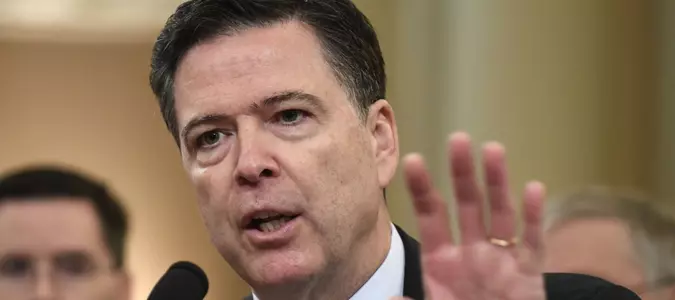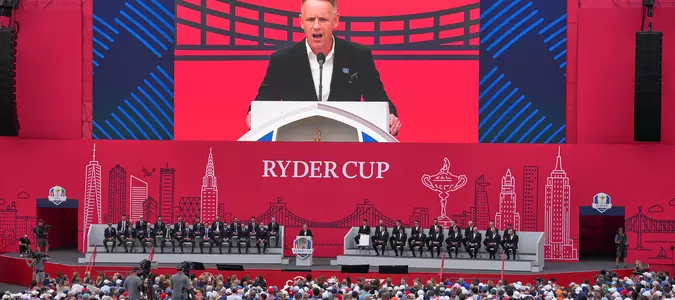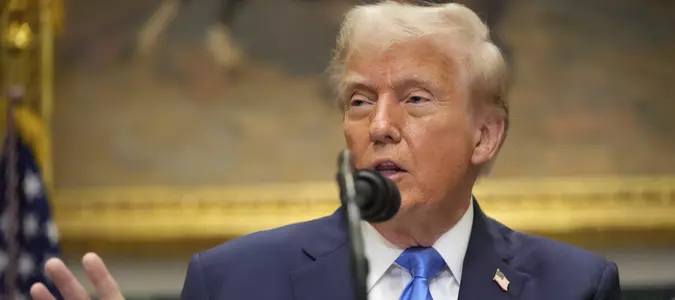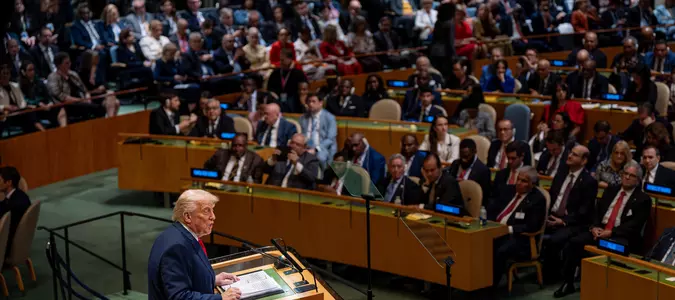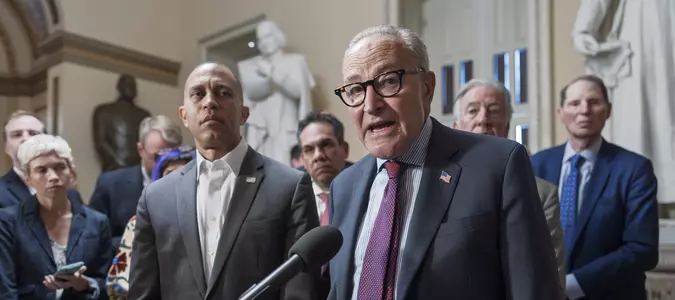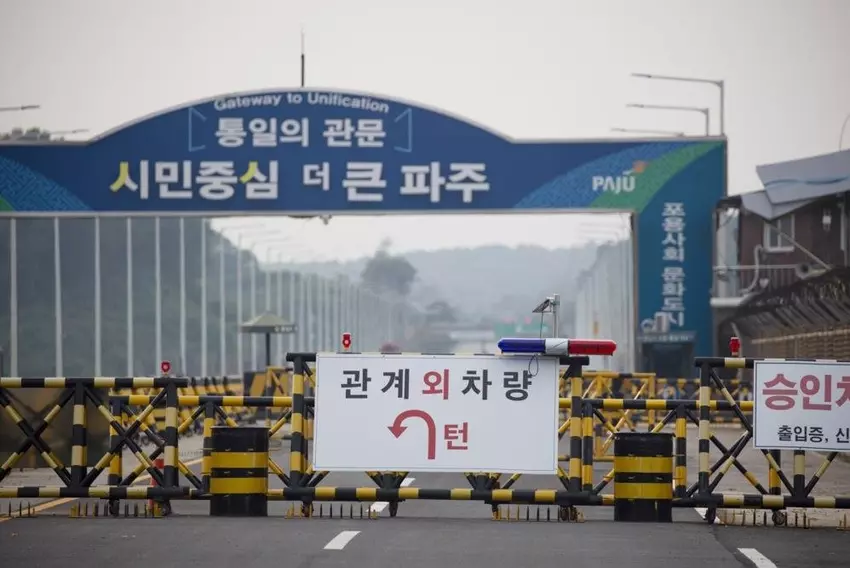

Why now is the time for a One Korea policy
It is time to adopt a One Korea Policy rooted in moral truth, strategic necessity and the shared values of the Republic of Korea and the United States.

Sept. 24 (UPI) -- Editor's note: These remarks were provided Tuesday at the Thirty-Ninth International Security Conference: Challenges and Opportunities for the ROK-U.S. Alliance, jointly presented by the Hudson Institute and the Council on Korea-U.S. Security Studies.
For more than 70 years, the Korean peninsula has remained divided, an unnatural separation described in paragraph 60 of the 1953 Armistice as the unresolved "Korea question."
For decades, United States and alliance policy has centered on deterrence and denuclearization. But today, we face a new reality. Kim Jong Un has abandoned even the pretense of peaceful unification, declared South Korea his "main enemy" and tied his regime's survival to nuclear weapons, repression and fear.
This moment calls for strategic clarity. It is time to adopt a One Korea Policy, a policy rooted in moral truth, strategic necessity and the shared values of the Republic of Korea and the United States.
What is a One Korea policy?
A One Korea policy begins with a simple recognition: There is only one Korea and one Korean people. The division of the peninsula is not natural, not permanent and not legitimate. It exists solely because of the will of the Kim family regime to rule a Guerrilla Dynasty and Gulag State, which maintains power through blackmail diplomacy, crimes against humanity and nuclear coercion.
Just as the United States adopted a "One China" policy, we must now declare openly: North Korea is not the permanent future of the Korean people. The Republic of Korea, a resilient democracy and global pivotal state, is the sole legitimate guardian of Korean identity and destiny.
The acceptable, durable political arrangement we seek is clear: a secure, stable, non-nuclear, economically vibrant, liberal constitutional Korea -- what we call the United Republic of Korea, or U-ROK.
Why do we need a One Korea policy now?
Kim Jong Un has crossed the Rubicon. His abandonment of peaceful unification and branding of South Korea as the "enemy" is not an act of strength, but a confession of weakness. It reveals desperation and fear of his own people, as they awaken to the possibility of freedom and the prosperity that exists in the South.
For too long, our policies have been reactive, a constant cycle of responding to Pyongyang's provocations, hoping for engagement, and settling for management, never resolution.
The absence of a clear vision has allowed strategic paralysis to set in. Some claim unification is a fantasy, that the Korean people no longer desire it, or that it's only a Korean problem. These views are not just mistaken, they are dangerous. They blind policymakers to the root causes of nuclear threats, instability and humanitarian tragedy. The only path that truly resolves these crises, rather than perpetuating them, is a One Korea policy.
How does a One Korea policy support ROK-U.S. Alliance strategy?
The One Korea Policy strengthens, not undermines, the alliance. It does so in two ways:
• Clarifies strategic purpose: For decades, denuclearization was our stated goal, but we now know Kim will never negotiate away his nuclear weapons. A One Korea policy reframes the alliance mission: unification first, then denuclearization. Only a unified Korea can end the nuclear threat.
• Anchors a "two-plus-three strategy." The alliance rests on two enduring pillars: strong military deterrence to prevent war and strategic strangulation through sanctions and pressure to constrain the regime.
But these alone are not enough. We must add the three new pillars:
• A human rights-up-front approach that empowers Koreans in the North to claim their universal rights. Just as President Reagan did with the Soviets, we must always place human rights on the agenda.
• A comprehensive information and influence campaign to break Pyongyang's monopoly on information and propaganda.
• Support for the Korean people on both sides of the DMZ as they solve the Korea question and pursue freedom.
Builds moral and political legitimacy
By declaring unification as our shared objective, the ROK-U.S. alliance speaks not just to governments, but to people, Koreans in the North yearning for freedom, Koreans in the South seeking peace, and allies who support democratic values worldwide. It makes clear that our struggle is not against a people, but against a regime that holds them hostage.
Countering opposition: End policy paralysis
Let's be clear: it is the naysayers who dismiss unification, cling to failed engagement policies, and urge arms control with a cult-like crime family regime that have perpetuated instability. Every other strategy has been tried and has failed. No negotiation has moved Pyongyang off its nuclear path. Denuclearization is unattainable as long as Kim rules north Korea. The refusal to imagine and strive for a united future is what stops progress.
History shows us that change can come from within -- from the fall of the Berlin Wall, and the collapse of the USSR to the end of apartheid, civil society and international solidarity will defeat entrenched tyranny. The Korean peninsula is no different. It is time to reject pessimistic thinking and embrace a vision that matches the courage and aspirations of the Korean people.
Call to action: for policymakers and civil society
Governments alone cannot achieve this goal. Civil society, scholars, defectors, diaspora, human rights activists and free citizens in Korea and abroad must lead, pressuring governments to adopt One Korea as doctrine, not just sentiment. We must consistently reframe every discussion of peninsula security toward unification as the only real solution.
The alliance must empower Korean escapee voices, break the regime's information monopoly and organize international solidarity. Legislatures should pass resolutions affirming One Korea. Diaspora communities must launch campaigns to keep unification on the agenda in Seoul, Washington and global capitals.
Conclusion: One Korea, one future
Kim Jong Un's new policy should mark the end of our misguided illusions. We must meet this moment not with resignation, but with resolve. A One Korea policy is a moral and strategic necessity. It is the pathway to peace, justice, and liberty, a united Republic of Korea (U-ROK). If you can only take away one thing from this presentation, please embrace these14 words:
"Unification first, then denuclearization, the path to unification is through information and human rights."
David Maxwell is a retired U.S. Army Special Forces colonel who has spent more than 30 years in the Asia Pacific region. He specializes in Northeast Asian security affairs and irregular, unconventional and political warfare. He is vice president of the Center for Asia Pacific Strategy and a senior fellow at the Global Peace Foundation, where he focuses on a free and unified Korea. After he retired, he became associate director of the Security Studies Program at Georgetown University. He is on the board of directors of the Committee for Human Rights in North Korea and the OSS Society and is the editor at large for the Small Wars Journal.




